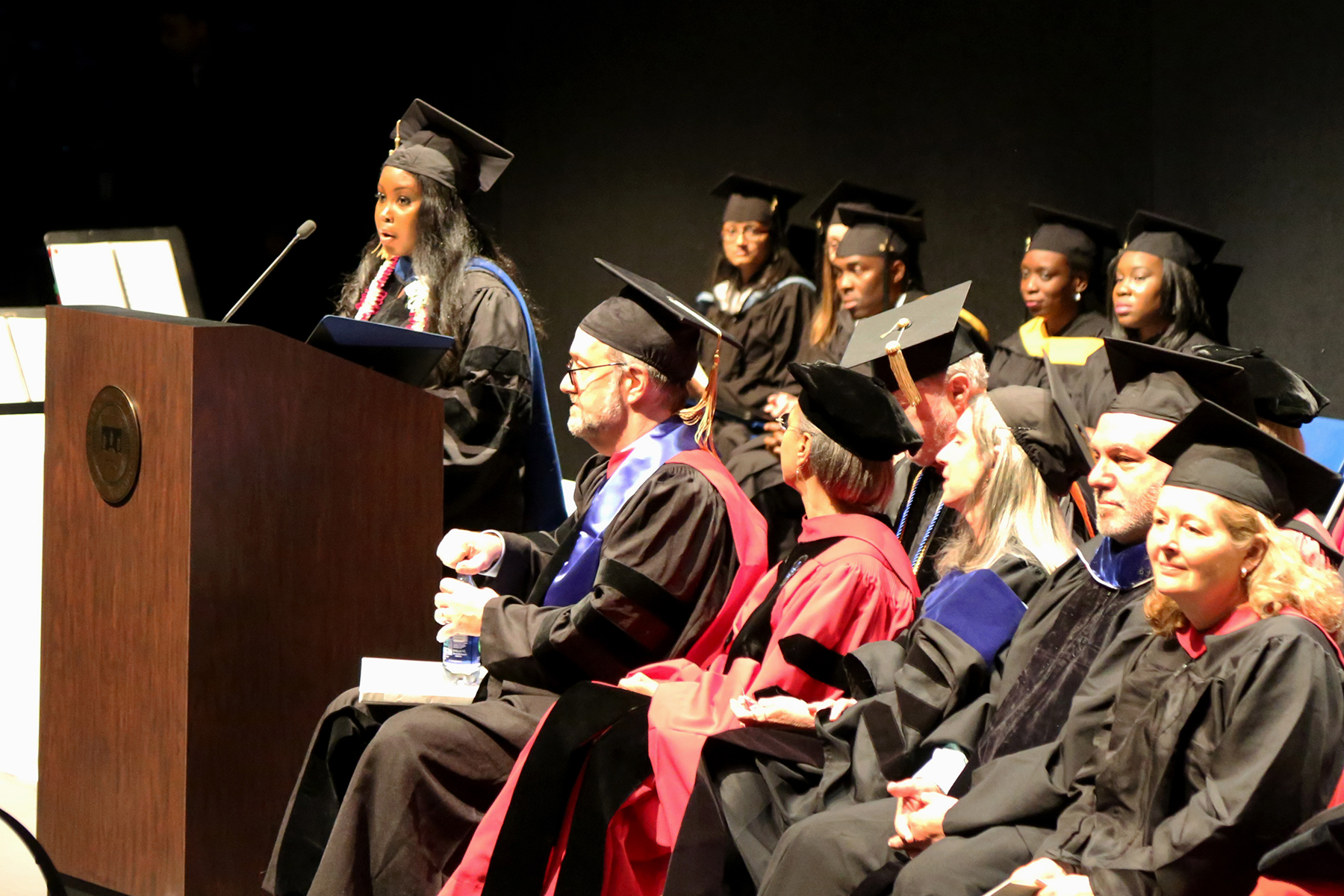
I want to share a story with you all that began when I was 8 years old. My mom and I were driving from one side of town to the other, and I was looking out the window, admiring the houses and neighborhoods that we passed. I asked her, “Why is it the further we get from our house, the other houses get so much nicer?” My mom responded, “These people just have more money than we do.” But I knew there was much more to that story.
The communities that I observed that day were starkly different than mine. My community is what researchers classify as a high-poverty neighborhood, defined by the U.S. Census as an area with at least 40 percent of the entire population living below the federal poverty threshold. These neighborhoods, where people of color are often concentrated, tend to have a high incidence of single parenthood, crime and drugs.
I later learned that our neighborhood made us hot topics in sociological research, with statistics showing that our youth are more likely to drop out of school, more prone to violence, more likely to suffer from teen pregnancy… the list goes on.
Although we didn’t know about these statistics as kids, we did feel the profound effects of concentrated poverty and limited opportunity. My peers and I responded to structural disadvantage differently. For me, these conditions ignited a competitive and perseverant spirit: I would not be defined by the statistics, my socioeconomic disadvantage, or others’ perceptions of what people like me could achieve.
While researchers predict that my background alone would sediment me into the bottom rungs of society, I stand before you today as a member of the 1.7 percent of the entire U.S. population with a doctoral degree.
While my desire to disprove the statistics ignited me, what ultimately drove me was a desire to learn why communities like mine looked like they did in the first place.
When I was accepted into the Heller PhD program, I remember thinking the Assets and Inequalities concentration was the perfect fit. The courses affirmed the structural forces at play and the role of public policy in excluding specific populations from economic opportunity, including the long history of discrimination in housing and mortgage lending.
I also learned how research and public policy can be used as corrective measures against these structural injustices. I learned about innovative asset development policies to promote wealth creation among low-income and communities of color. At Heller, I’ve been privileged to lead my own research, evaluation studies, and help federal, state, and local agencies integrate asset-development and equity-based programming into their initiatives.
My Aunt Dwila once said, ‘Those who do, do. Those who don't sit around and talk about it. Are you a doer or are you gonna sit around and talk about it?” As we are reminded every day of the challenges black people face for merely trying to exist, the challenges immigrant groups face for merely trying to dream, and the challenges children worldwide face for merely trying to live, we must remember to be doers and use our skills and knowledge received from this institution as disruptors of the ills plaguing our society.
I close with a quote from M.K. Asante, a great African-American studies scholar: “When you make an observation, you now have an obligation.”
When I was 8, I made a simple observation about my hometown of Wichita, Kansas. Since then, it has been my obligation to use research and public policy to advance communities like mine. I ask the class of 2018, “What observation are you passionate about? And how will you continue to fulfill your obligation to this passion?” Remember: we must use our knowledge to advance social justice.
Congratulations! And thank you!
